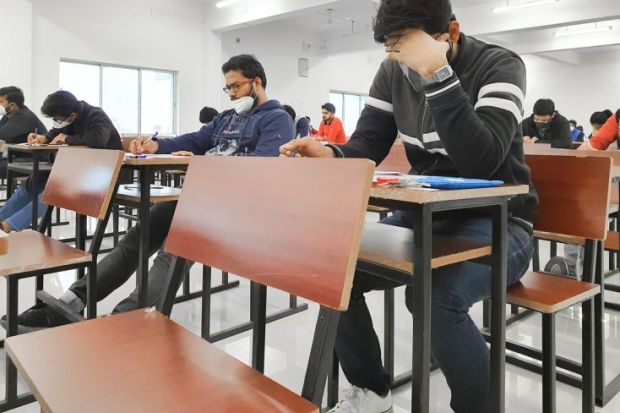The Indian government has fired the head of the country’s National Testing Agency (NTA) after a series of issues with the delivery of exams, including abnormally high marks, cancellations and alleged paper leaks.
Concerns were raised after thousands of candidates sitting last month’s UGC-NEET exam, which determines admission into undergraduate medical courses, scored unusually high marks, effectively making it more difficult to obtain a place at the country’s already oversubscribed medical schools.
After test results were released earlier this month, some students took the NTA to court, demanding resits and that “grace marks” – granted to approximately 1,500 students in cases where exams were delayed – be revoked. The government agreed to remove grace marks but gave candidates who had received these a chance to resit the test. Across the country, arrests have been made over suspected paper leaks and cheating scams.
A few weeks later, another national exam was cancelled after students had already taken it: the UGC-NET, which is used to appoint junior research fellows and assistant professors to universities. In a statement, the Ministry of Education said it had received information from cybercrime officials that the “integrity” of the exam “may have been compromised”.
Days afterwards, Subodh Kumar Singh, director of the NTA, was sacked, and policymakers have now commissioned a committee investigation into fair examination practices. The issues are also being investigated by the India’s Central Bureau of Investigation.
Students have continued to call for action, including that the NTA be scrapped, and ongoing protests forced the education minister to cancel a visit to the University of Delhi.
The education ministry said: “[The] government is committed to ensure the sanctity of examinations and protect the interest of students. It is reiterated that any individual [or] organisation found to be involved in this matter will face strictest action.”
Weeks after closer-than-expected parliamentary elections, India’s leading opposition party has taken the opportunity to attack the newly re-elected BJP government. According to local media, Congress leader Rahul Gandhi said the issues around the NEET exam were “another unfortunate example of the ruined education system under the rule of Narendra Modi”.
These incidents have highlighted the growing discontent among India’s students and graduates. Places at India’s medical institutions are in high demand, with about 2 million students in India taking the NEET exam each year, competing for 110,000 seats.
Youth unemployment emerged as an issue throughout the election campaign, with graduates finding it disproportionately difficult to secure jobs that align with their education level. Tensions over exams and the intense competition young Indians face are likely to add to the pressure on Mr Modi to tackle the sense of disillusionment among the country’s large youth population.




